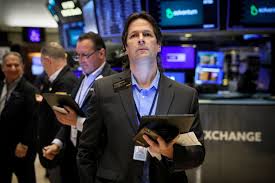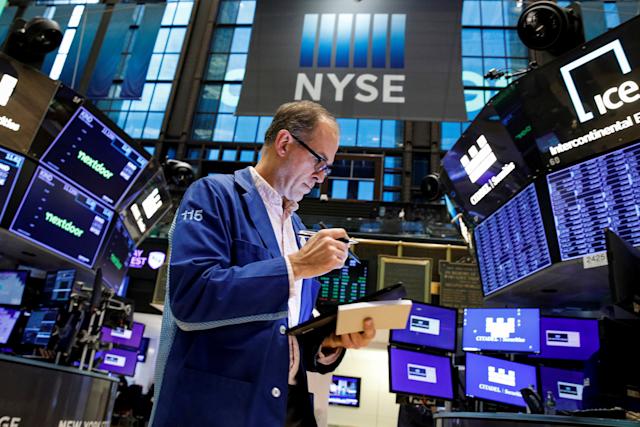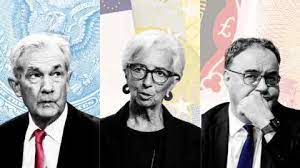The war in Ukraine has tended to increase uncertainty regarding inflation and growth prospects. When and with what consequences this war will end is pure speculation, but capital markets are expected to build a certain immunity to the headline risks in the coming weeks. The medium- to long-term consequences, on the other hand, could be significant. It is possible that we are at the beginning of a new bloc formation or a new Cold War. This would put a significant damper on globalisation and further fuel higher structural inflation.
Global equities reversed earlier gains on Tuesday after investors digested hot US inflation ahead of the start of the earnings season. The Dow Jones closed 0.3% lower at a four-week low while the S&P 500 was down by 0.4% and the Nasdaq ended 0.3% lower, mostly weighed down by tech and banking stocks. European markets also extended losses, amid lingering concerns that rising inflation and higher interest rates will drag the block’s economy into a recession.
Summary
- Asian markets were mostly trading in the green on Wednesday after the selloff in the previous two sessions.
- European stock futures are edging lower while their US counterparts were flat in the early hours of the morning.
- Oil futures held on to sharp gains from the previous session, amid concerns over supply tightness as peace talks between Russia and Ukraine appeared to have come to a dead end. Oil prices were also supported by reports of partial easing of Covid-related curbs in some pilot area of China.
- Russian President Vladimir Putin blamed Ukraine on Tuesday for derailing peace talks, and said Moscow would not let up on what it calls a “special operation” to disarm its western neighbour.
- China’s trade surplus jumped to $47.4 billion in March from $11.83 billion in the same month a year earlier, easily beating market forecasts of $22.4 billion, amid a decline in imports, due to re-imposing Covid-19 restriction measures. Exports extended their double-digit growth, increasing by 14.7% from a year earlier, while imports edged down 0.1%, the first drop since August 2020.
- US annual inflation rate accelerated to 8.5% in March, the highest since December 1981 from 7.9% in February and compared with market forecasts of 8.4%. Energy prices rose 32% while food prices jumped 8.8%. Core CPI rose 6.5%, slightly below forecasts of 6.6%. Many analysts expect March to mark the inflation peak although the war in Ukraine is far from over, supply chain bottlenecks persist and consumer demand remains elevated which is likely to weigh on the CPI for longer.
- China increased its overall trade with Russia and war-hit Ukraine in the first quarter from a year earlier in yuan terms, and Beijing said economic cooperation with both countries would remain normal.
- The Biden administration is preparing a military assistance package of roughly $750 million for Ukraine in its battle against Russian invaders. The weapons and other equipment are expected to be sent under presidential drawdown authority, which allows Joe Biden to transfer equipment from US stocks without congressional approval in order to speed up delivery during an emergency.
- The ZEW Indicator of Economic Sentiment for Germany decreased by 1.7 points to -41 in April of 2022, the lowest since March 2020 but above market expectations of -48. The expectations and assessments of the economic situation are currently similar to those at the beginning of the COVID-19 pandemic in March 2020.
- UK Prime Minister Boris Johnson and Finance Minister Rishi Sunak are set to be fined for breaching Covid-19 lockdown laws. Johnson has seen his ratings rise over this response to the war in Ukraine.
- LVMH reported strong Q1 results yesterday, beating estimates. The company however warned it’s currently seeing a negative impact on demand for luxury products due to lockdowns in China. Its’ business largely escaped the effects from the Russia-Ukraine conflict, mainly because both countries are tiny markets for its brands, with Russia accounting only for around 1% of its global business.
- Shares of Deutsche Bank and Commerzbank were down over 9% and 8%, respectively, on reports that Capital Group is selling a large block of shares in the banks.






